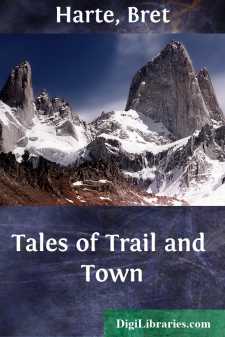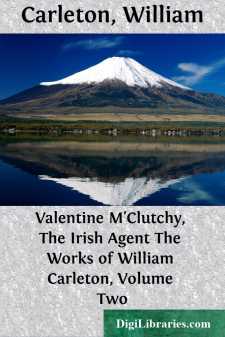Literary Collections
- American 84
- Ancient, Classical & Medieval 14
- Asian 1
- Australian & Oceanian 1
- Canadian 55
- Continental European 121
- English, Irish, Scottish, Welsh 179
- Essays 160
- General 24
- Letters 46
- Middle Eastern 1
Literary Collections Books
Sort by:
by:
Bret Harte
CHAPTER I It must be admitted that the civilizing processes of Rough and Ready were not marked by any of the ameliorating conditions of other improved camps. After the discovery of the famous "Eureka" lead, there was the usual influx of gamblers and saloon-keepers; but that was accepted as a matter of course. But it was thought hard that, after a church was built and a new school erected, it...
more...
by:
Eliot Gregory
There existed formerly, in diplomatic circles, a curious custom, since fallen into disuse, entitled the Pêle Mêle, contrived doubtless by some distracted Master of Ceremonies to quell the endless jealousies and quarrels for precedence between courtiers and diplomatists of contending pretensions. Under this rule no rank was recognized, each person being allowed at banquet, fête, or other public...
more...
They look so dull and dowdy in the spring weather, when the snow drops and the crocuses are putting on their dainty frocks of white and mauve and yellow, and the baby-buds from every branch are peeping with bright eyes out on the world, and stretching forth soft little leaves toward the coming gladness of their lives. They stand apart, so cold and hard amid the stirring hope and joy that are throbbing...
more...
by:
Andrew Lang
VII October 1882—August 1884 In the two years and odd months since his return from California, Stevenson had made no solid gain of health. His winters, and especially his second winter, at Davos had seemed to do him much temporary good; but during the summers in Scotland he had lost as much as he had gained, or more. Loving the Mediterranean shores of France from of old, he now made up his mind to...
more...
by:
William Carleton
CHAPTER I.—An Irish Pair and Spoileen Tent —A Marriage Proposal—An Under Agent—An Old Irish Squire and Union Lord. The town of Castle Cumber it is not our intention to describe at more length than simply to say, that it consists of two long streets, intersecting each other, and two or three lanes of cabins—many of them mud ones—that stretch out of it on each side at right angles. This...
more...
by:
Honore de Balzac
CHAPTER I. MADAME JULES Certain streets in Paris are as degraded as a man covered with infamy; also, there are noble streets, streets simply respectable, young streets on the morality of which the public has not yet formed an opinion; also cut-throat streets, streets older than the age of the oldest dowagers, estimable streets, streets always clean, streets always dirty, working, laboring, and...
more...
by:
John Galsworthy
THE ROAD The road stretched in a pale, straight streak, narrowing to a mere thread at the limit of vision—the only living thing in the wild darkness. All was very still. It had been raining; the wet heather and the pines gave forth scent, and little gusty shivers shook the dripping birch trees. In the pools of sky, between broken clouds, a few stars shone, and half of a thin moon was seen from time...
more...
SHADOWS FROM A CLOUDED BROW. A LITTLE thing clouded the brow of Mrs. Abercrombie—a very little thing. But if she had known how wide the shadows were often diffused, and how darkly they fell, at times, on some hearts, she would have striven more earnestly, we may believe, to keep the sky of her spirit undimmed. It will not be uninstructive to note the incidents, in a single day, of Mrs....
more...
by:
Bret Harte
A VENERABLE IMPOSTOR. As I glance across my table, I am somewhat distracted by the spectacle of a venerable head whose crown occasionally appears beyond, at about its level. The apparition of a very small hand—whose fingers are bunchy and have the appearance of being slightly webbed—which is frequently lifted above the table in a vain and impotent attempt to reach the inkstand, always affects me as...
more...
PREFACE It is a harder thing than it ought to be to write openly and frankly of things private and sacred. "Secretum meum mihi!"—"My secret is my own!"—cried St. Francis in a harrowed moment. But I believe that the instinct to guard and hoard the inner life is one that ought to be resisted. Secrecy seems to me now a very uncivilised kind of virtue, after all! We have all of us, or...
more...











